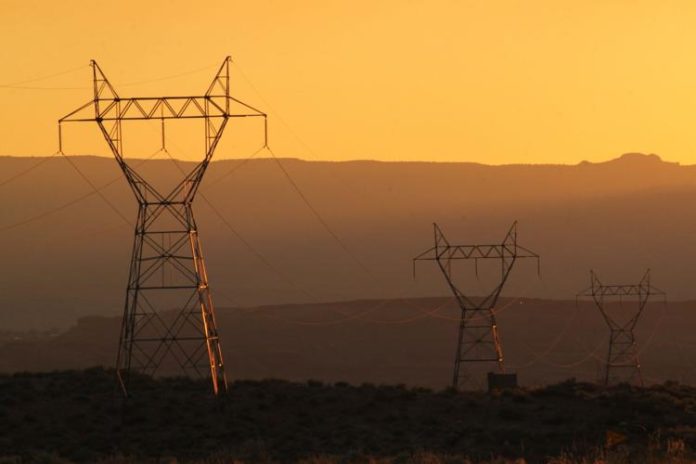
Today, nearly all Americans own a cellphone. But as fast as this technology spread, the cellular revolution could have happened much faster if it weren’t for one thing: government-conferred monopolies that prevent innovation. Similar government-imposed distortions exist today when it comes to how citizens purchase energy for their homes. In Arizona, it’s past time for bureaucrats to lift their effective ban on competition—and in doing so, give consumers more choice in the energy marketplace.
As early as 1915, the American Telephone & Telegraph Company, also known as AT&T, discussed developing a wireless telephone. Development of the technology was delayed, however, because the company believed that the new technology would undermine its near-monopoly on wired phone service. At the time, and throughout most of the 20th century, AT&T held a near-monopoly on phone service inside the United States through a network of companies called Bell System, nicknamed “Ma Bell.” This monopoly was largely created by the Kingsbury Agreement and later federal law and government regulations that effectively conferred on AT&T a government-sponsored monopoly. The result is that there was not broad innovation in telephone service for decades, as incentives were distorted based on market regulation.
Just as government distorted the telephone industry, it’s also impacting the electric generation and retail market.
In Maricopa County, Ariz., home to nearly 4.5 million people, if a resident wants electric service, the resident must use the provider in his or her service area—likely Arizona Public Service or Salt River Project utility companies. Those providers have service areas territories in which they exercise monopoly privileges. As a result, there simply is no choice for the customer, nor is there competition among service providers for power service. If a new service provider wishes to provide competitive electric generation service in Arizona, the company must receive approval from the Arizona Corporation Commission (“Commission”) in the form of a Certificate of Convenience and Necessity (“CC&N”). But as a result of Commission rules and government-conferred monopoly privileges in existing service territories, CC&N applications from new market entrants are uniformly denied.
This is true even though the Legislature passed the Energy Competition Act (“ECA”) in 1998, requiring that “service territories established by a certificate of convenience and necessity shall be open to electric generation service competition for all retail electric customers for any electricity supplier…” A.R.S. § 40-208. Although that measure was passed over 20 years ago, establishing electric generation service competition as the policy of Arizona, CC&Ns are not granted to new providers in existing service territories.
The reason electric service competition has yet to take root in Arizona is largely the result of a series of court decisions that obscured the lines of authority between the Commission and the Arizona Legislature.
But, in 2020, the Arizona Supreme Court made clear the distinction between the Commission’s rate-making and non-rate-making authorities and how those authorities intersect with the Legislature’s police power to set electric service policy in the state.
In Johnson Utilities, L.L.C. v. Arizona Corp. Commission, the court held that the Commission only has plenary authority with respect to rate-making. Other policy matters unrelated to rate-making are shared between the Legislature and the Commission. And importantly, if there is a conflict between a state statute and a Commission regulation unrelated to rate-making, the statute prevails. Or, as the court put it, “when there is a conflict between a Commission regulation and a statute, the legislature’s police authority is paramount, meaning it has the authority to override the regulations of the Commission.”
In light of Johnson Utilities, the question becomes: Why isn’t the Legislature’s stated policy of electric retail competition the “paramount” policy of the state, overriding any conflicting Commission rules or practices?
An answer to that question may be forthcoming in an interesting case brought by a company called Green Mountain Energy. Green Mountain applied for a CC&N with the Commission, specifically citing the Legislature’s policy of competition as stated in the ECA.
The Commission has not acted on that application but has instead forwarded questions related to the application to the Arizona Attorney General for clarification.
The answer to the question of whether electric generation service competition – and thus whether Green Mountain’s CC&N should be approved – should be straightforward.
The legislature’s police power authority is paramount. Here, the legislature has exercised its authority to set a policy of electric retail competition in the state. If existing Commission rules or practices conflict with that policy, the Commission’s rules must yield to state statute.
In the end, innovation will always prevail. Although it took many decades because of government-sponsored monopoly privileges given to wired telephone companies, we now all have wireless phones (and much more) right in our pockets. The miraculous benefits of choice and competition could also bring tremendous innovation to the generation and delivery of electric service. The Arizona Legislature recognized that fact—and enacted it as a policy of this state – over 20 years ago. It is time the Commission does the same.
This article originally appeared at Goldwater Institute’s In Defense of Liberty blog.
Jon Riches is the Director of National Litigation at the Goldwater Institute.
Republished with the permission of The Center Square.













